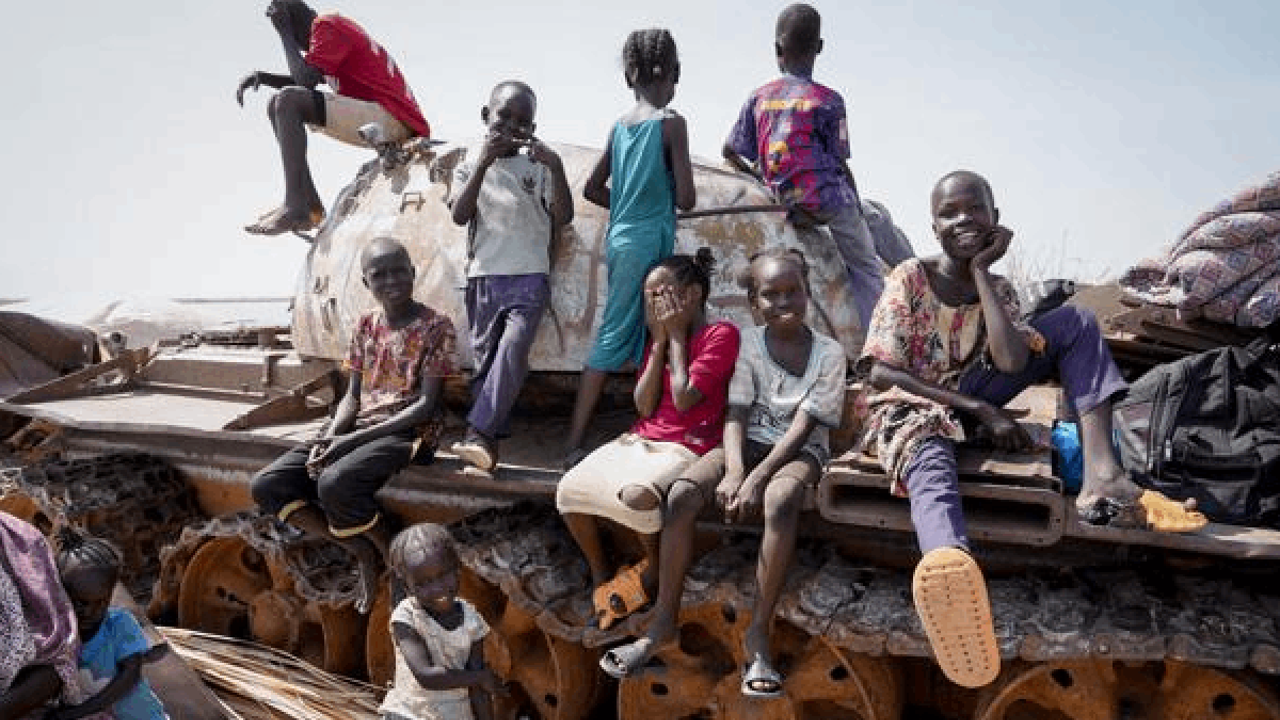Poverty rises in Sudan as people are caught between conflicts
Despite the ceasefire declared between the army and the RSF on Monday in Sudan, but clashes in the country continue on Tuesday. Both sides blame each other for the ceasefires that are constantly violated. The people are caught between the conflicts and they flee to neighboring countries.

In Sudan, clashes continue on Tuesday despite a ceasefire between the army and the paramilitary Rapid Support Forces (RSF) that was extended for 5 days late Monday under US and Saudi Arabia mediation. The ceasefires between the army and the RSF are frequently violated.
Since the extension was announced, more fighting was reported by residents, including "clashes with various kinds of weapons in southern Khartoum" and fighting in Nyala in the state of South Darfur.
Both sides accuse each other of violating the ceasefire and claim they are only responding to enemy attacks, Digital Journal reported.
MORE THAN 1,800 PEOPLE KILLED
At least 1,800 people have been killed since the war began. More than a million have been displaced and nearly 350,000 have fled to other countries, the UN says.
Residents have been hiding from street combat and roaming looters in the capital city of more than five million, nearly 700,000 of whom have fled, according to the United Nations.
CEASEFIRE IS FREQUENTLY VIOLATED
Since the conflict began, both army leader Abdel Fattah al-Burhan and RSF commander Mohammed Hamdan Daglo have promised a series of ceasefires. But the ceasefires have been violated even less than 24 hours later.
WAR ON ONE SIDE AND INFECTIOUS DISEASES ON THE OTHER
Malaria, cholera and other diseases threaten the southeast African country as the rainy season begins soon.
SUADN CANNOT ESCAPE POVERTY
Even before the war, a third of Sudan's 45 million people were in need of aid. The poverty-stricken country suffered frequent power cuts and collapsing health systems.
After the war, the proportion increased and more than half of the population - about 25 million according to the United Nations - is in need of assistance.
Among them are 13.6 million children, including 620,000 suffering from severe acute malnutrition, "half of whom may die if not helped in time".
THREE QUARTERS OF HOSPITALS OUT OF SERVICE
Entire districts of Khartoum no longer have running water, electricity is only available for a few hours a week, and three quarters of hospitals in combat zones are out of service, Digital Journal reports.
What few health facilities still operate have practically run out of medicines and equipment and have to purchase fuel at up to 20 times its pre-war price to keep generators running.
Humanitarian workers are trying to reach the region to try to improve conditions, but access to Khartoum and Darfur has become impossible. Aid organizations have only managed to deliver small amounts of food and medicine.
LIFE IN DARFUR HAS BECOME IMPOSSIBLE
The situation is worse in Darfur. Activists and observers warn that Darfur civilians continue to be attacked, entire districts have been burned to the ground, and tens of thousands have been forced to flee into neighbouring Chad.
In the midst of the attacks, constant internet blackouts have left the people of Darfur completely cut off from the world, and the world has been kept in the dark about developments in the region.
'TOTAL CIVIL WAR'
Sudan could descend into "total civil war", warned the Forces for Freedom and Change, the main civilian bloc ousted from power by Burhan and Daglo in a 2021 coup.
"We must arm ourselves," a Darfur resident told AFP. "It's an impossible situation. People are completely alone, they're being attacked in their homes and they can't do anything."
Another resident contacted by AFP warned that statements urging civilians to join the fighting are "totally irresponsible" and "a very dangerous call that can lead us into civil war".
Source: Digital Journal









